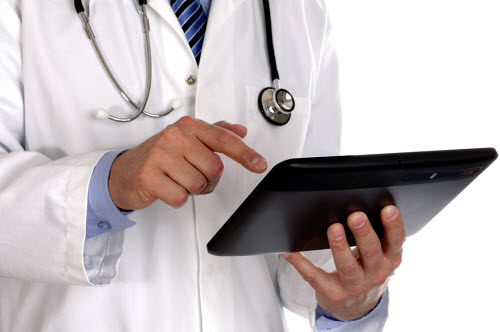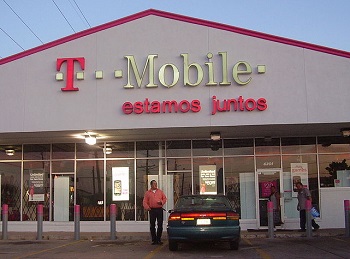A recent Merck survey found that smartphones and tablets are altering the way healthcare is provided.
A new survey by Merck Manuals showed that mobile health technology is changing the game. These mobile digital resources are helping doctors and patients in the way that care is provided. The survey revealed that doctors feel confident in their ability to keep up with digital and mobile technology.
The physician participants in the survey said they were ready for the changes being made in information tech.
The main focus of healthcare has been moving toward value and efficiency. In this effort, mobile health technology has considerable potential for doctors. They feel as though they are properly equipped to keep up with this tech shift.
 The survey involved the participation of 220 physicians. It was held at a recent medical conference at which the vast majority of participants said that mobile technology such as smartphones in their offices has changed the way visits occur. This applies both in the case of their own smartphones and those brought by their patients.
The survey involved the participation of 220 physicians. It was held at a recent medical conference at which the vast majority of participants said that mobile technology such as smartphones in their offices has changed the way visits occur. This applies both in the case of their own smartphones and those brought by their patients.
More than 4 out of 5 doctors feel mobile health technology has changed the dynamic in their offices.
Among the respondents, 81 percent said that being able to obtain medical information over mobile devices has caused multiple changes in their offices. That said, physicians feel they are prepared for what is to come. They feel tech savvy enough to be able to use the devices and apply them effectively to their patient interactions.
Among those who feel prepared for the tech shift – 75 percent of the respondents – two out of three say they use mobile technology a minimum of ten times per day to access medical information. They feel this tech helps them to keep up with patient interaction needs and demands for time.
Eighty percent of the doctors who use mobile health technology devices at work use information they learn from apps and online information databases. They are using this information to provide themselves with more detailed information when making a diagnosis or recommending a patient treatment plan. Another two out of every three are keeping themselves up to date with medical news over mobile devices.
During times of congestion, the phone data is given priority even for consumers paying for 4G tethering.
T-Mobile USA has revealed that it has started a practice of mobile hotspot throttling. This will occur at times when the network is heavily congested. The purpose is to give priority to smartphones and other mobile devices with data through the cellular network.
The company has been sending messages to advice customers about this recent change.
The website explained the mobile hotspot throttling by saying that “We just made your network better again. T-Mobile device data comes first. We’ve primed the network for on-device use.” The website went on to say “So now when there’s congestion, you may notice higher speeds for data on your T-Mobile devices versus Smartphone Mobile Hotspot (tethering).”
 When the network becomes heavily congested, the service will automatically give priority to on-device data. This, the company admits, will bring about slower tethering speeds. Those slower speeds will occur even for people who have paid for them.
When the network becomes heavily congested, the service will automatically give priority to on-device data. This, the company admits, will bring about slower tethering speeds. Those slower speeds will occur even for people who have paid for them.
The mobile hotspot throttling should keep smartphones moving fast but laptops will have a more sluggish connection.
The change has been made at the same time that T-Mobile has been working to encourage customers to switch to somewhat unlimited plans. They want people to use plans labeled as unlimited but that actually do have certain limitations applied to them. They are hoping the switch will occur to send people away from the data buckets.
The newly launched T-Mobile One plan does not have any coverage fees or data caps. However, it does have a throttle that reduces video to 1.5 Mbps. This makes it possible to enjoy about 480p resolution but not more. Moreover, when customers consume over 26 GB in a month, their data usage is throttled, as well when connecting to cell towers.
The standard plan through T-Mobile One has a monthly fee of $70. While those customers can connect to hotspots, it is throttled to 512 kbps no matter the time of day or congestion. This is considerably slower than the un-throttled 4G LTE mobile tethering download speeds from the company. Those typically run between 3 and 25 Mbps, but can run as high as 90 Mbps. T-Mobile One customers can pay an additional monthly $25 for faster hotspot use and high-def video, but even in that package is subject to the mobile hotspot throttling at congested times.
 The survey involved the participation of 220 physicians. It was held at a recent medical conference at which the vast majority of participants said that mobile technology such as smartphones in their offices has changed the way visits occur. This applies both in the case of their own smartphones and those brought by their patients.
The survey involved the participation of 220 physicians. It was held at a recent medical conference at which the vast majority of participants said that mobile technology such as smartphones in their offices has changed the way visits occur. This applies both in the case of their own smartphones and those brought by their patients.
 When the network becomes heavily congested, the service will automatically give priority to on-device data. This, the company admits, will bring about slower tethering speeds. Those slower speeds will occur even for people who have paid for them.
When the network becomes heavily congested, the service will automatically give priority to on-device data. This, the company admits, will bring about slower tethering speeds. Those slower speeds will occur even for people who have paid for them.